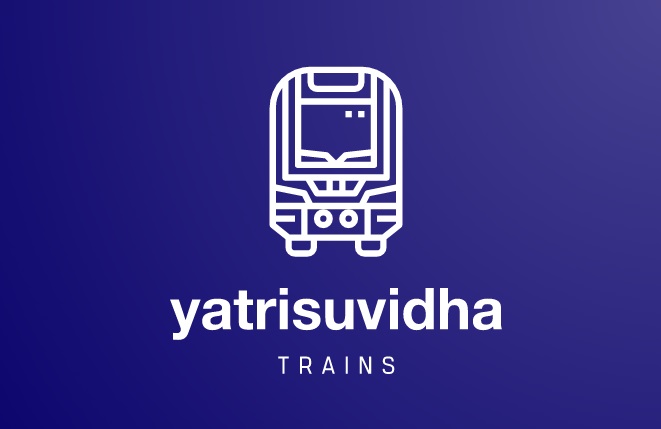
The Indian Railways, one of the largest and most complex rail networks in the world, serves as the lifeline of the nation, carrying millions of passengers daily. To manage this immense demand, a quota system has been implemented, aiming to ensure equitable ticket distribution across different sections of society. However, the role of quotas in ticket allocation has long been debated due to its perceived lack of fairness, misuse, and transparency issues.
the nuances of quotas in Indian Railways, highlighting their impacts, challenges, and potential solutions.
Introduction: Understanding Quotas in Indian Railways
Quotas in Indian Railways are specific seat allocations designed to cater to various groups of passengers, such as senior citizens, women, defense personnel, and others. These quotas are an attempt to balance accessibility and inclusivity in train travel. While the concept of quotas is rooted in fairness, the increasing population, rising travel demands, and evolving societal needs have exposed loopholes in the system.
At its core, the quota system addresses the following objectives:
Ensuring ticket availability for underprivileged or specific groups.
Catering to emergency travel needs through schemes like Tatkal.
Offering flexibility for officials and VIPs with reserved quotas.
Despite its intent to promote inclusivity, the system often disrupts the availability of general tickets, leaving ordinary passengers at a disadvantage.
Tatkal, VIP, and Other Quotas: Impact on General Ticket Availability
The Indian Railways quota system encompasses various categories, each tailored for specific purposes. Here’s an overview of key quotas and their effects:
- Tatkal Quota
Tatkal is one of the most popular quota schemes, introduced to facilitate last-minute travel. While it provides relief to emergency travelers, its heavy demand often results in swift ticket unavailability. Additionally, high ticket prices under Tatkal can burden economically weaker passengers.
- VIP Quotas
VIP quotas are reserved for government officials, politicians, and other dignitaries. Though these are necessary to maintain administrative efficiency, the perception of special treatment often sparks criticism. Critics argue that these allocations reduce seats available for the general public, adding to frustration among ordinary travelers.
- Other Quotas
Quotas such as Ladies Quota, Senior Citizen Quota, Defense Quota, and Foreign Tourist Quota aim to support specific passenger categories. While their social importance is undeniable, the cumulative allocation across all quotas significantly impacts general ticket availability.
The multiplicity of quotas often leaves limited seats for the General Quota, compelling regular passengers to struggle for confirmed bookings.
Unfair Practices: Misuse of Quota Tickets and Black-Market Sales
A critical concern surrounding quotas is their misuse. Some of the most common unfair practices include:
- Black Market Sales
Unscrupulous agents exploit the quota system to hoard tickets and sell them at inflated prices. Tatkal tickets, due to their high demand, are particularly vulnerable to this malpractice. The black market creates an artificial scarcity, further marginalizing regular passengers.
- Misuse of Special Quotas
VIP quotas and other special allocations are sometimes misused by individuals who use connections or bribes to secure tickets under these categories, bypassing standard booking protocols.
- Proxy Bookings
In many cases, tickets reserved under specific quotas, such as Senior Citizen Quota, are misused by younger travelers who use the names of elderly relatives to secure seats. Such practices not only exploit the system but also deprive genuine beneficiaries.
Transparency Issues: Lack of Clarity in Quota Allotment Policies
Transparency in the Indian Railways’ quota allocation policies is a longstanding issue. Many passengers are unaware of how quotas are distributed, leading to confusion and distrust. Key issues include:
- Opaque Allotment Mechanisms
The exact number of seats reserved under each quota on different trains is often not disclosed, leaving passengers guessing about their chances of securing a ticket.
- Absence of Public Monitoring
While the system aims for inclusivity, there is no public mechanism to oversee whether quotas are being utilized as intended. This lack of accountability fosters misuse and inefficiency.
- Inconsistent Implementation
Quota allotments can vary across trains and routes, with no clear explanation provided for these inconsistencies. Such discrepancies often lead to perceptions of favoritism or unfairness.
Solutions: Re-evaluating Quotas and Introducing AI-Driven Fair Allocation Systems
To restore fairness in ticket allocation, Indian Railways must adopt innovative solutions and reform its current policies. Here are some potential approaches:
- Comprehensive Review of Quotas
Conducting a detailed review of existing quotas to assess their relevance, allocation sizes, and social impact is crucial. Redundant or underutilized quotas should be revised or eliminated to optimize seat availability.
- AI-Driven Ticket Allocation
Artificial Intelligence (AI) can revolutionize ticket allocation by analyzing demand patterns, optimizing quota distribution, and detecting fraudulent activities. AI systems can dynamically adjust quotas based on real-time data, ensuring a more equitable distribution.
- Enhanced Transparency
Implementing a transparent quota management system is essential. Public dashboards displaying quota allotments, seat availability, and usage statistics can foster trust and accountability.
- Stringent Anti-Fraud Measures
Strengthening security measures, such as mandatory identification verification and AI-driven fraud detection systems, can curb the misuse of quota tickets.
- Priority to General Passengers
To ensure fairness, a greater proportion of seats should be allocated to the General Quota. Emergency quotas, such as Tatkal, can be made more affordable and equitable by capping prices and monitoring agent activities.
Quotas in Indian Railways are a double-edged sword. While they ensure inclusivity for specific passenger groups, their mismanagement often disrupts general ticket availability and fosters unfair practices. Addressing these challenges requires a holistic approach that combines policy reforms, technology-driven solutions, and enhanced transparency.
By re-evaluating quotas and leveraging advanced tools like AI, Indian Railways can create a more efficient and equitable ticket allocation system. Such reforms will not only enhance passenger satisfaction but also strengthen the public’s trust in this vital transportation network.

Leave a Reply